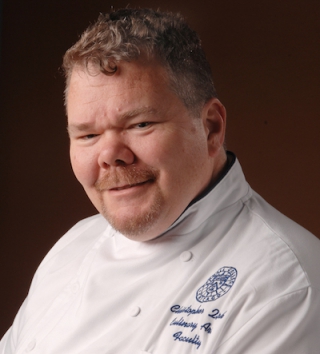
Guest Speaker: Teaching Students Quick Service to Develop Core Business Skills
27 April 2016Kendall College’s Chef Christopher Quirk describes the real-world lessons obtained in the college’s lunch QSR. Students get a feel for the harried pace and how teamwork, leadership and speed are all part of the successful business plan.
Courtesy of Kendall College and Chef Christopher Quirk, CCE, CHE
Fine dining and quick service restaurants (QSR) may seem worlds apart, but the connections are important for all culinary students to understand. For one, the fast-casual category of QSR is filled with fine-dining chefs—from Chicago’s Rick Bayless, who started Xoco, to Steve Ells, the founder of Chipotle. They, among many others, helped make “chef-driven fast casual concepts” the No. 2 food trend, according to the National Restaurant Association. (Click here to download NRA’s 2016 Culinary Forecast.)
Another reason students need to understand this space is that QSRs are the strongest performing segment in the foodservice industry, according to The NDP Group. They accounted for 79 percent of foodservice visits in 2015. At the same time, fast casual visits increased eight percent. “The quick service restaurant segment serves a variety of consumer needs regardless of positive or negative sentiment,” says Bob O’Brien, The NDP Group’s global senior vice president foodservice. “For those consumers who are optimistic, quick service serves their need for convenience and grabbing a meal or snack on-the-go, and for those less positive, quick service enables them to treat themselves to an affordable meal out.”
At Kendall College, we have three student-run restaurants that match different consumer needs: a fine-dining restaurant, a cafeteria, and a QSR. The QSR is open one hour a day for lunch, but that’s a busy hour for us. Most classes at Kendall happen in the morning to accommodate students’ work schedules, and they break around 11:30 a.m. On average, we serve 130 to 140 covers an hour while some days during that hour we serve as many as 170 covers.
Our QSR is run by students in the Quick Service Restaurant course of our Associate of Applied Science in Culinary Arts program. We created the course because many students come to Kendall with little or no restaurant experience. This course immerses them in the realities of working in a full-service kitchen before they go out on internship. They spend 12 days cooking at scale in a short-order environment for their hungry and harried classmates. It takes teamwork, leadership and speed to deliver exceptionally prepared food.
Students rotate through positions, including general manager, back expediter and cook, at four stations in the back of the house. We aim for fast-casual quality and keep our speed as close as possible to that of a fast-food restaurant. We have two dishes per station, with eight total dishes, plus two soups and a salad on the menu each day. After a few days working this way, each student introduces a dish that he or she conceived. This results in eight dishes on the static menu and four on the rotating menu. We aim for little or no leftovers.
This experiential learning also helps students apply what they’ve learned in courses like Cost Control, Quantity Food Production, and Storeroom Operations and Purchasing. They run the QSR as a business. In addition to writing menus and hand-off recipes, creating plating instructions, and doing the prep work, cooking, and service, they track sales, manage inventory, and assess profitability. In doing this, we see students make significant gains in their culinary business and math skills. What may have seemed conceptual or abstract in an academic environment becomes real when they need to calculate the difference between a recipe for 20 and that same recipe for 60 or more, or when they need to determine the cost and suggested selling price for a special dish they are recommending.
Students are graded daily on task analysis, organization, timing, cooking techniques, food display, hygiene and sanitation, and professionalism in the kitchen and customer service. Homework includes costing out recipes. We test to make sure they understand static and limited cycle menus and revenue and expense management.
When we close up shop after the daily lunch rush, we report on the costs of food for the day, talk about what worked and what didn’t, and read comment cards from customers. It’s gratifying for QSR students to hear from their classmates that they are delivering high-quality meals quickly and efficiently, and it’s reassuring for them to know from firsthand experience that they are ready for an internship in any culinary environment.
One of the best things we do in this course at Kendall College is engage students in the process of visualization and creation, tie them to the reality of that process by having them actually do the work, and have them share in the reward for that work by seeing its success firsthand. Best practices yield best results in this case.
Chef Christopher Quirk, CCE, CHE, is an elite chef, entrepreneur, and culinary instructor. He has worked as an executive chef at a Hôtel Sofitel in California; opened a lakeside restaurant in Wisconsin; and been sous chef for the Westmoreland Country Club in Wilmette, Illinois. Since 2005, he has taught at Kendall College, running the café breakfast class, cafeteria dinner class, and the QSR class. He has also taught at the New England Culinary Institute and helped develop and open a culinary campus in the British Virgin Islands. He has a bachelor’s degree in English Literature from the University of Wisconsin at Madison and an AOS from the New England Culinary Institute.
Photo courtesy of Kendall College.
